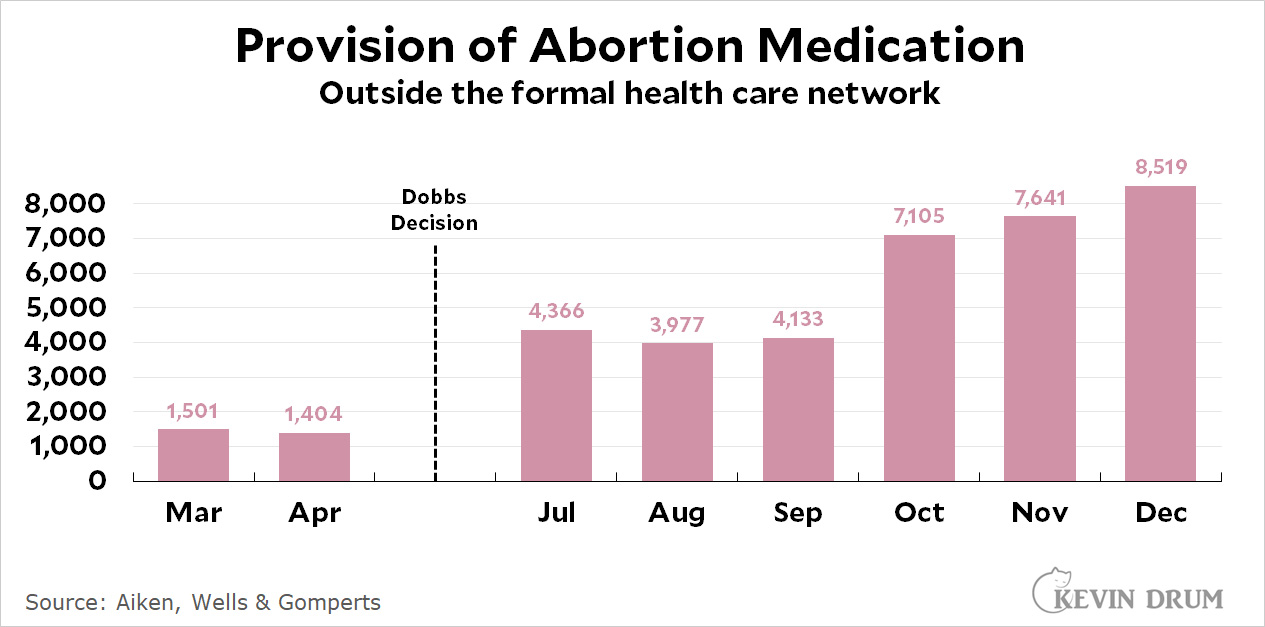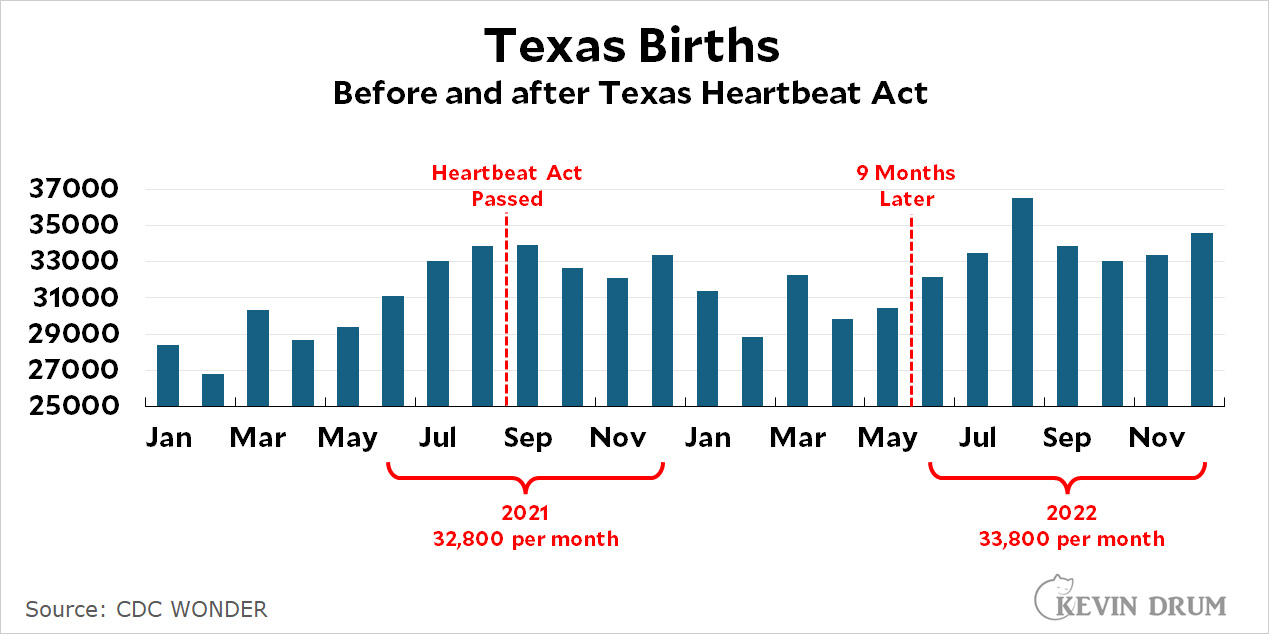A new study published in JAMA shows that the informal health care network¹ increased its provision of abortion pills following the Supreme Court's Dobbs decision. Here's a summary of their findings:
 The average provision of abortion pills increased by about 4,500 per month nationally following the Dobbs decision.
The average provision of abortion pills increased by about 4,500 per month nationally following the Dobbs decision.
But this is not what interests me. Rather, it's the furious reaction of Michael New over at National Review, who insists that the "purported" results are unreliable:
The data that appears in the JAMA article are self-reported by organizations that...have an interest in showing that there is a high demand for self-managed chemical abortions when strong pro-life laws are passed. Furthermore, taking the data at face value, we see that chemical-abortion pills ordered does not necessarily equal chemical abortions obtained.
Of course the data is self-reported. How else can you do a survey? And as New himself admits, the authors adjusted their findings for average usage rates, which ranged from 86% to 99%. I agree that the study is a little on the patchy side, but it's basically OK.
But New says this is just part of a trend of pro-choice organizations fudging the data. In particular, he points to a New York Times piece from last year about the Texas Heartbeat Act. The article says that in-state abortions went down dramatically in Texas, but the reduction was offset by increases in medication abortions and out-of-state abortions. But here's the weird part. The Times analysis suggests the net number of abortions in Texas went down by about 750 per month. New thinks the liberal Times got it wrong because his preferred analysis suggests the birthrate in Texas went up by about 1,000 per month. My own quickie analysis bears this out:
 But what this means is that both measures are in pretty good agreement, especially given the inherent fuzziness of short-term data. There's nothing to complain about here.
But what this means is that both measures are in pretty good agreement, especially given the inherent fuzziness of short-term data. There's nothing to complain about here.
Anti-abortion folks are just hellbent on trying to prove that Dobbs, along with subsequent state laws banning abortion, had a huge impact on abortion. But there's now a mountain of data all pointing in the same direction: The impact has ranged from nothing to small. Even in red states, people who want abortions are willing to go to significant lengths to get them.
¹Community networks, telemedicine providers, and online vendors.

He's not wrong that it's pretty much always a mistake to trust data from ACTIVISTS, no matter what it is for which they are activisting.
This was one of Hans Rosling's big points, and he believed that one of the main reasons the world (not just the US, not just the West, the entire world) is so clueless about what has happened in the world in the past fifty years in terms of povery reduction immunization, life expectancy, education, etc is because the loudest voices (ie activists) are supplying a continual stream of numbers that are either outright lies, or very carefully shaped to maintain a particular "you have no idea how bad it is, and getting worse" narrative.
Don't tell them, but that small increase in births in Texas was all due to increase in immigrants.
😉
(ok, I didn't look up the numbers)
Well, the population of Texas has been growing each year. Which means what Kevin et al should really be looking at is the number of live births per 100,000 women. Same normalization should be made for the abortion pills.
And also, perhaps, things like rates among teens.
If what you are looking at is the change in live births compared to the number of abortions, and establishing which has changed more that normalization isn't necessary. Since you'd be dividing both by the same denominator, you'd arrive at the exact same conclusion.
The JAMA study appears to be nation-wide. The live births chart is for just Texas. The increasing population of Texas is less than 10% of the population of the US as a whole. So I think normalization is still indicated.
Anchor babies FTW!
Baron!
I don't get why anti-abortion folks are hellbent on showing Dobb had a huge impact reducing abortions. Showing a small change allows them to appease moderates by claiming libs were exaggerating and scaremongering, while also energizing their base by demonstrating the need for a national ban.